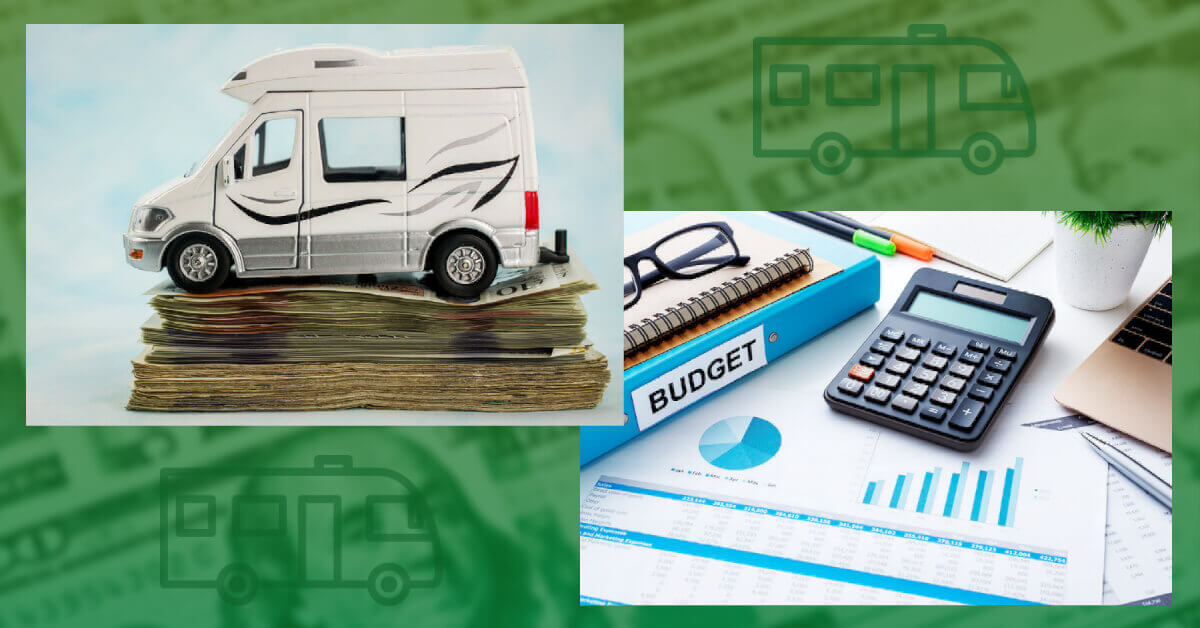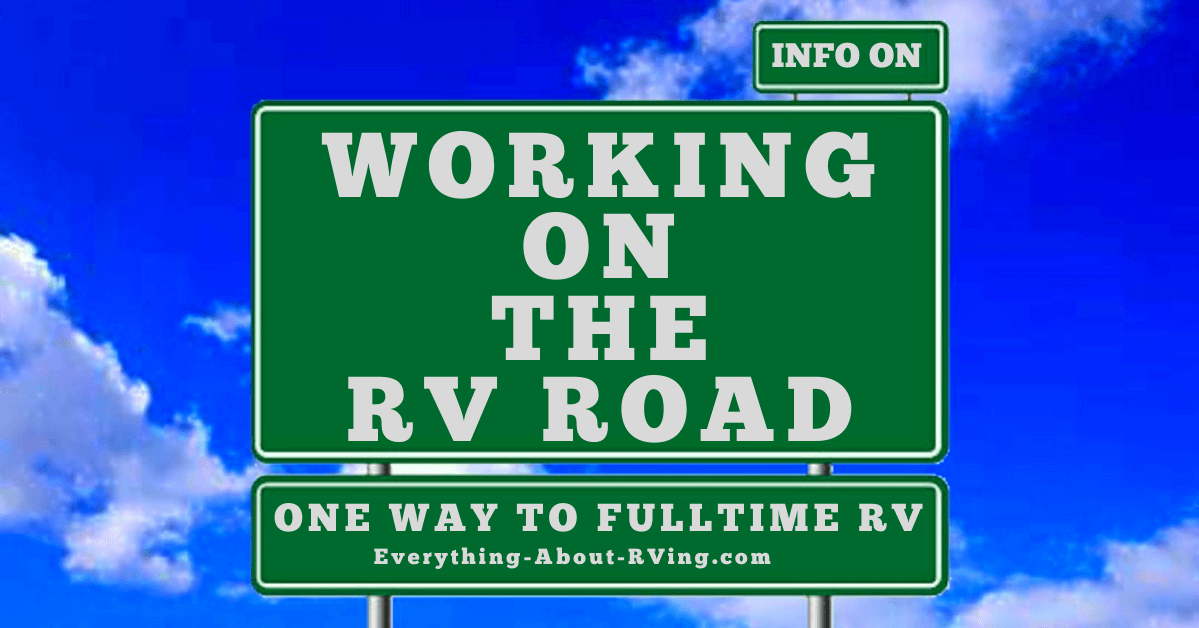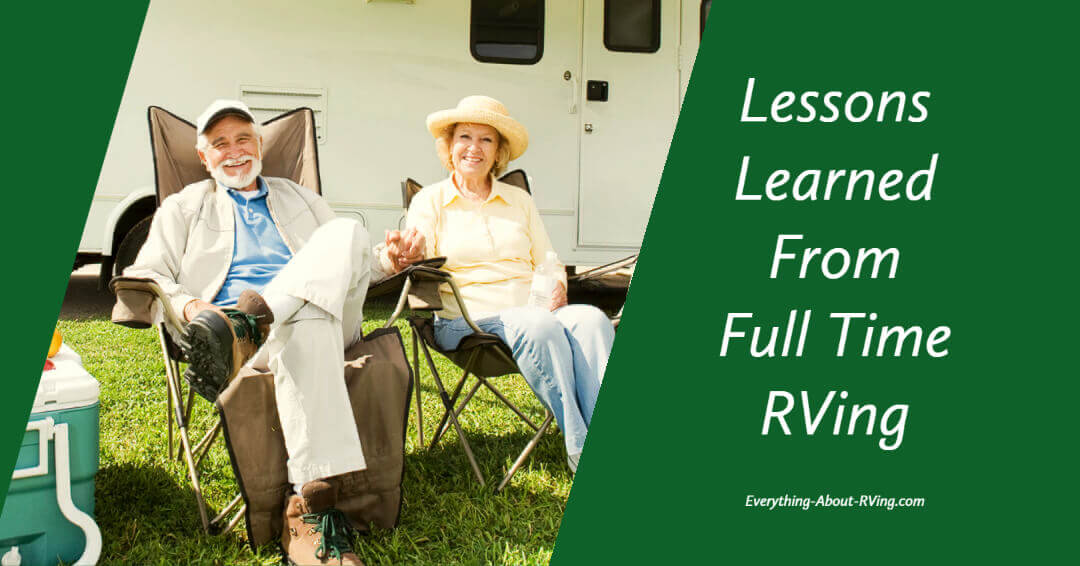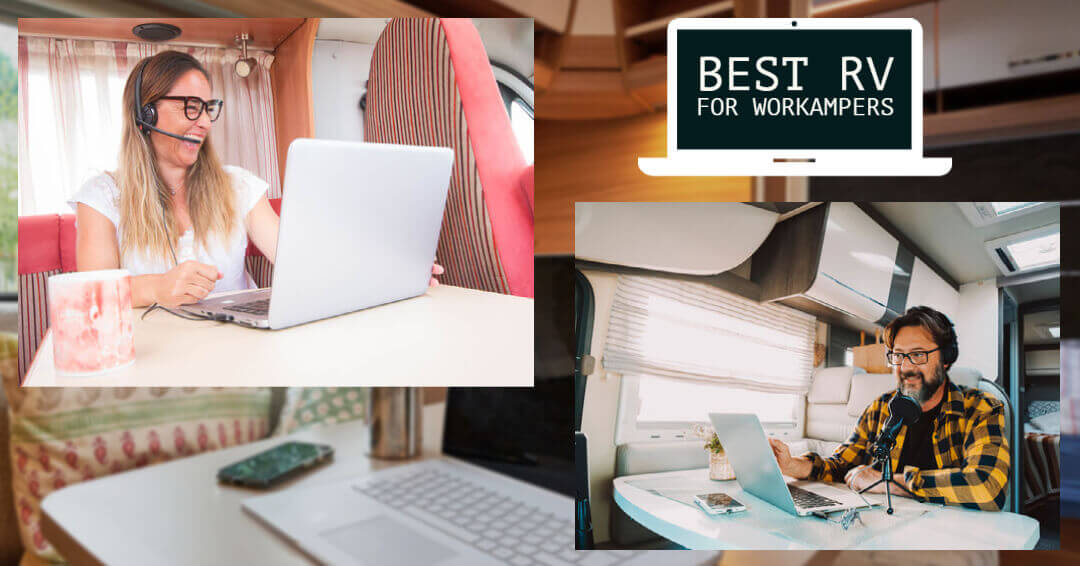- Home Page
- RVing Tips & Tricks
- 6 Financial Preparations to Take Before Fulltime Rving
6 Financial Preparations to Take Before Fulltime RVing
If you're planning to spend the rest of your life in your RV, you need to review these 6 financial preparations to take before fulltime RVing
If you're planning to spend the rest of your life in your RV, you need to review these 6 financial preparations to take before fulltime RVing. Proper financial planning is essential to keep your family safe and secure while RVing.
Many people dream of working and living out of their RV all year round. The allure of making your own rules, not being tied down, and getting the chance to see the splendor and beauty of this great country along the way are just some of the great benefits of an RV lifestyle.
However, if you decide to switch things up and live a nomadic life, you must ensure that your financial preparations are in order. Proper planning is important, so you don't end up in the middle of nowhere without the necessary cash to ensure your family is kept safe and secure along the way. If you are planning on RVing full-time, consider the six-money management and financial security tips below.
1. Establish State Residency
Even though you will spend all your time on the road going from place to place, you will still need to establish state residency. This step is necessary because you will need to pay taxes, and every state has its own rules. The good thing about your situation is that you have some flexibility and don't have to choose the state where you currently live. Instead, you can look at the benefits of different states and choose the one that appeals to you the most.
The one requirement that you will need to meet is that you will need a mailing address. If you don't have a permanent house, you can claim residency in a state where you can use a friend's or family member's address. However, you will need a driver's license and vehicle registration for that state. Before you take part in your full-time RV adventure, get your state residency sorted out.
2. Consider Selling Your Home
As mentioned, you do not need to rent an apartment or own a physical home in a state to be a resident. Many full-time RVers choose to sell their home and use the money to fund their lifestyle on the road.
If you make the decision to sell your home, you must set yourself up for success. Start by improving your home's curb appeal by cutting the grass, trimming the bushes, and painting the exterior walls. This is also an excellent time to repair loose siding or roof tiles. Improving your curb appeal is essential, especially if you plan to be on the road while you are trying to sell. Taking care of all necessary maintenance before you leave ensures that the home stays in good shape while you are gone.
It is also a good idea to declutter the home so potential buyers can imagine themselves in the space. If your personal belongings are piled up and spread around your house, it might turn off prospective home buyers. A real estate agent will help you during the sale, especially if you won't be living in the home.
3. Figure Out How You Will Earn Money
Unless you live off your savings, you must find a way to make money while RVing. Luckily, there are several ways to earn a living with a remote lifestyle, but you will need to figure out your income before leaving.
If this is your first-time freelancing, then you must consider what you are good at and how you can parlay that into a career. You could work as a freelance writer if you love the written word. If you are a subject expert or at playing an instrument, then you could tutor people online. Many full-time RVers make passive income by investing in stocks or creating content on YouTube.
If you choose to keep your house, you could make money by renting it out to yearly tenants or turning it into an Airbnb. The sky's the limit. Just make sure that you will earn what you need to survive.
4. Make a Budget
Of course, this is the most important part of the 6 financial preparations to take before fulltime RVing.
When living on limited funds or an irregular paycheck, you must create a budget. It would help if you started by looking at all the expenses you will face every month, including groceries and fuel. Then, you need to compare that to the money you will have coming in monthly and ensure that you will have enough. If you are short, you may need to remove some of the flexible expenses you like but don't necessarily need, including eating-out gym memberships and streaming service subscriptions.
If you have money left over every month, consider depositing it into a high-interest savings account. It is an excellent way to make extra money and have an emergency fund when facing unexpected expenses like RV maintenance.
5. Think About Retirement
Many inspiring full-time RVers make a mistake: they plan for their short-term financial goals but don't necessarily think about the future. If your plan includes living in your RV for the foreseeable future, you should also consider retirement. The savings account is a good start. Supplement those funds by investing regularly into an individual retirement account that will build up over time.
If you want to stay in your RV for an indeterminate amount of time, you should also plan to save money however you can. You can find free RV parking spots, stay in one location longer to avoid having to pay repeated deposits, and regularly maintain your RV so you can go longer without expensive visits to the mechanic.
6. Consider Your Health Insurance
The final section of the 6 financial preparations to take before fulltime RVing is acquiring health insurance.
One financial concern many potential RVers have is how they will secure and pay for health insurance. You'll have several options when it comes to insurance. If you're 65 or older, you can take advantage of Medicare, which works nationwide, so you are always covered. You can also get coverage through the healthcare exchanges courtesy of the Affordable Care Act. You will get insurance for the state where you claim residency. Add healthcare costs to your budget to ensure you have money for the monthly premium.
As you can see from these 6 financial preparations to take before fulltime RVing, there are several financial preparations that you will want to sort out before you dedicate yourself to a full-time RV lifestyle. Consider the tips discussed here; you can afford a fantastic RVing adventure.






Comments
Do you have a comment on this topic? You can leave your comment in the box below.